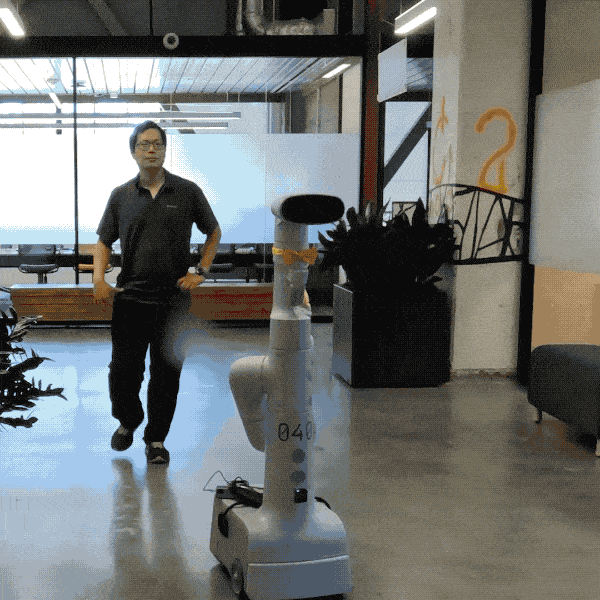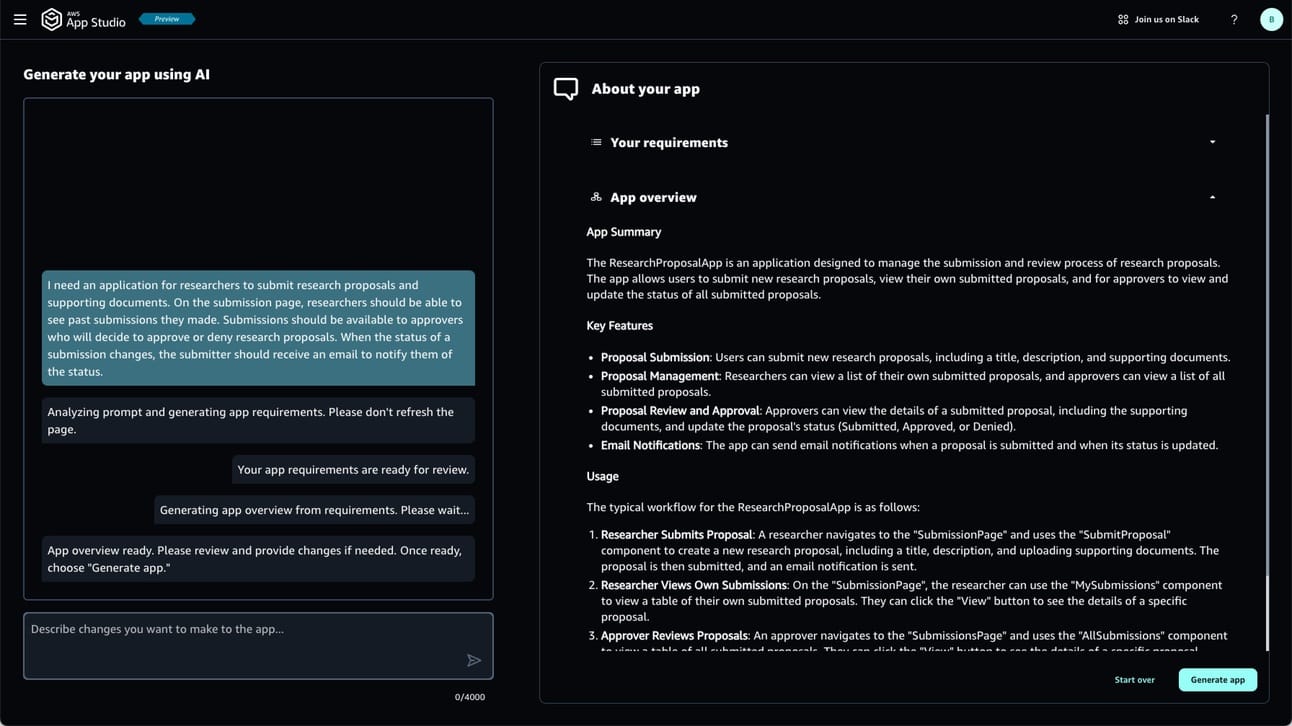
Welcome to this edition of Loop!
To kick off your week, we’ve rounded-up the most important technology and AI updates that you should know about.
HIGHLIGHTS
Why Microsoft and Apple have just ditched their seats on OpenAI’s board
The rise of fake articles written by AI
Google’s robot that can navigate around their office
… and much more
Let's jump in!


1. Defence tech investment reached a whopping $35 billion in 2023
The distance between Silicon Valley and the Pentagon continues to shrink, as venture capitalists are investing heavily in defence tech startups.
To support this growing sector, VCs are now hiring former Department of Defence officials and military veterans.
Of course, they bring valuable battlefield insights and networks to these firms. This is crucial, as it gives the companies a competitive edge and helps them to secure deals with the US DoD.
Shield AI, Anduril, and Helsing have raised billions in the last few years - but there’s no sign of a slow-down.
In fact, Helsing has raised over $487 million this week - which I’ve covered below in this newsletter.
It’s clear that as tensions rise between the West and Russia, much more money will be invested in this sector.

2. Apple bloggers are surprised to find AI articles “written by them”
We all know when we’ve read something that was written by AI. The models often use phrases that seem unnatural, so it can really stand out.
Some companies are now mass-producing AI articles, as they try to game Google’s search engine and earn money for no effort.
A former Apple blog, TUAW, has fallen victim to this after a new owner acquired the domain.
Web Orange Limited is now posting AI articles and pretending that they were written by former TUAW staff - many of whom left the site 10 years ago.
These articles appear to be AI-generated, with the content plagiarised from the original TUAW posts and run through a thesaurus to create slightly different versions.
It’s concerning for journalists, as their name can be falsely attributed to garbage content. But it’s also an issue for everyone else, as we’ll have to deal with a growing number of fake articles.

3. Microsoft and Apple ditch OpenAI board seats, due to regulator pressure
Just last week, I wrote that Apple and Microsoft had gained observer positions on OpenAI’s board.
Well, that’s no longer in the case. OpenAI has asked both companies to give up their seats, as the startup is facing scrutiny from regulators around the world - including the US, EU and UK.
Those regulators are very concerned about the partnerships being made between big tech companies and AI startups. Famously, Microsoft has a $10 billion deal with OpenAI to be their exclusive cloud partner.
The rapid u-turn shows that there is substantial scrutiny on the startup and that these observer roles are simply too great of a risk.

4. $1.7 billion will be used to convert shuttered auto plants into EV factories
The factories, which are currently closed or at risk of closing, will produce a range of EV components and vehicles - from electric motorcycle parts to heavy-duty commercial truck batteries.
President Biden emphasised that this investment will create thousands of well-paid jobs, while also helping automakers to reskill people in those communities.
The funding is part of a larger $15.5 billion programme, which is part of the Inflation Reduction Act.
Overall, eight states will benefit from the initiative - such as Illinois, Michigan, and Pennsylvania.

5. $487 million raised by a defence AI startup, which aims to combat the Russian threat
Helsing plans to expand its presence in European countries bordering Russia, with a new entity in Estonia.
They’re also planning a €70 million investment in Baltic defence projects, which will take place over the next three years.
Helsing develops AI software for defence systems, with the aim of enhancing the military’s weapons capabilities and secure better decision-making on the battlefield.
They have recently signed a deal with Airbus and have a contract to add AI capabilities to Germany’s Air Force.
This is a startup that I have highlighted before and are one to keep a close eye on, as this area will only intensify as time goes on.

Watch a Gemini robot navigate Google’s office

The robot used a LLM to process the user’s commands and navigate around the office.
In a series of videos, DeepMind employees ask the robot to perform various tasks and rank its performance.
In one example, the employee said they “want to draw something” and the robot then led them to a whiteboard.
To achieve this, the team told the robot about key objects and rooms in the office - which gives them a good sense of what can be used for the different tasks.
Google says that the robot had a 90% success rate, which spanned over 50 interactions with employees.
Using Generative AI models to train and control robots isn’t new. Google, Meta, and Microsoft have been exploring this for several years now.
While these models aren’t the magic bullet, they do provide a really flexible way for us to interact with robots and train them faster than ever.

AWS will create enterprise apps from a written prompt

App Studio aims to allow non-developers to build enterprise apps - without having to worry about writing lots of code.
The tool is targeted at IT professionals, data engineers, enterprise architects, and product managers who might not have that skill set.
To get started, you simply describe the app you want to make and what data sources should be used. App Studio will then generate a list of requirements for you.
While there’s plenty of other no-code tools to choose from, this one uses Generative AI to minimise that initial learning curve.
It’s a smart move from AWS, as they have been the go-to cloud platform for many developers. But GenAI has made it easier than ever to write code, even if you have no experience - potentially opening up a new market for them to tap into.

🚨 Apple warns iPhone users in 98 countries of spyware attacks
🩺 OpenAI and Arianna Huffington are working together on an 'AI health coach'
🚓 Waymo robotaxi is pulled over by police, after driving into the wrong lane
🛰️ Starlink Mini is now available for anyone in the US to roam
🤝 OpenAI partners with Los Alamos National Laboratory
🤖 UK politician is accused of being AI, but is actually a real person
✅ Humane execs leave company to found AI fact-checking startup
🎮 SoftBank acquires UK AI chipmaker Graphcore
🛍️ Amazon's AI shopping assistant rolls out to all users in the US
⚖️ Senate bill aims to protect artists' and journalists' content from AI use



Joby Aviation
This startup from California is developing electric air taxis that can be used in the cities. In a recent test, they successfully flew a hydrogen-electric VTOL for 523 miles.
Typically, battery-powered VTOLs only have a range of 100 miles. But to extend that range, they used both a liquid hydrogen fuel cell and hydrogen-electric propulsion system.
It’s an interesting advancement and it clearly shows that longer-range flights are possible, if the right infrastructure is put in place.
This follows on from their acquisition of H2Fly a few years ago, which was a German hydrogen startup.
The company hopes that this demonstration will kick-off serious conversations with regulators - and to pave the way for this technology to be certified.
This Week’s Art

Loop via Midjourney V6

It’s been another busy week and we’ve covered a lot, including:
Why investors are spending billions on AI defence startups
AI articles that are being written to impersonate other people
Why Microsoft and Apple have ditched their seats on OpenAI’s board
$1.7 billion plan to convert old auto plants into EV factories
Helsing’s new $487 million funding round for expanding into Eastern Europe
Google’s robot that can navigate around the office
AWS’ App Studio that can create enterprise apps from a written prompt
And Joby Aviation’s work on hydrogen-electric aircraft that can travel hundreds of miles
Have a good week!
Liam

Share with Others
If you found something interesting in this week’s edition, feel free to share this newsletter with your colleagues.
About the Author
Liam McCormick is a Senior AI Engineer and works within Kainos' Innovation team. He identifies business value in emerging technologies, implements them, and then shares these insights with others.


